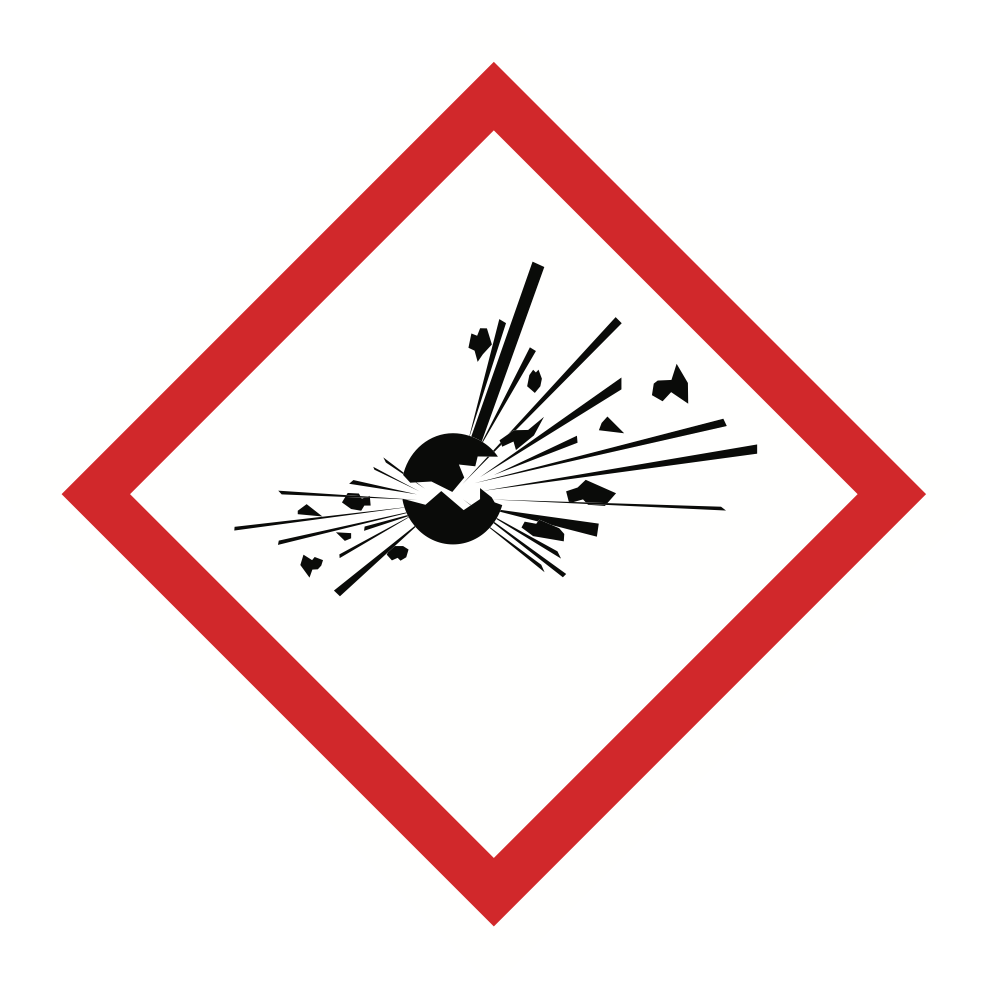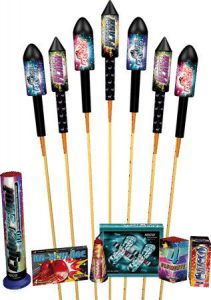Explosive materials
Explosive materials and ammunition – what is the right way to behave?
The ‘normal’ consumer does not come into contact with such products ? As a rule, this is true, but things often turn out differently than you think.
Ammunition from the Second World War is rarely found nowadays, but used ammunition from the military or especially the hunting sector turns up again and again at Resources Centers in Luxembourg. Even a hand grenade, obviously from the Balkans, was found at a Luxembourg Resources Center.
More often, however, chemical substances are delivered to SDK or Resources Centers that are explosive or contain explosive substances. These can be fireworks that have not been used for some reason or chemical substances such as picric acid from laboratories, including school laboratories.
The dangers resulting from explosives and ammunition do not really need to be pointed out. They are always classified as dangerous. Regularly around New Year’s, one finds news of serious injuries caused by fireworks.
Explosives and ammunition can be triggered by shock, heat and static discharges. Not only when it comes to ammunition, where the projectile effect is involved, is there a danger to life. Explosions can produce toxic gases, oxygen is extracted from the air, the resulting high temperatures can start fires, and the overpressure can cause hearing damage.
What should you be aware of when you come across unknown explosives and ammunition?
Do not attempt to tamper with explosives and ammunition or transport them yourself if you find them anywhere. Leave them at the point of origin/findings. Do not take them to a Resources Center or SDK as they are not equipped to receive explosives.
The service responsible for safe disposal is the Service de Déminage de l’Armée Luxembourgeoise (SEDAL). It can be reached via the police telephone number 113 or directly by calling 26 33 22 27.
The SEDAL is on call 24 hours a day. The service is free of charge. Information is treated confidentially.
Information on correct behaviour is also available from the SDK on telephone number 488 621 1.
Important danger warnings

The explosion cloud for danger of explosion

Explosive materials
Explosive materials and ammunition – what is the right way to behave?
The ‘normal’ consumer does not come into contact with such products ? As a rule, this is true, but things often turn out differently than you think.
Ammunition from the Second World War is rarely found nowadays, but used ammunition from the military or especially the hunting sector turns up again and again at Resources Centers in Luxembourg. Even a hand grenade, obviously from the Balkans, was found at a Luxembourg Resources Center.
More often, however, chemical substances are delivered to SDK or Resources Centers that are explosive or contain explosive substances. These can be fireworks that have not been used for some reason or chemical substances such as picric acid from laboratories, including school laboratories.
The dangers resulting from explosives and ammunition do not really need to be pointed out. They are always classified as dangerous. Regularly around New Year’s, one finds news of serious injuries caused by fireworks.
Explosives and ammunition can be triggered by shock, heat and static discharges. Not only when it comes to ammunition, where the projectile effect is involved, is there a danger to life. Explosions can produce toxic gases, oxygen is extracted from the air, the resulting high temperatures can start fires, and the overpressure can cause hearing damage.
What should you be aware of when you come across unknown explosives and ammunition?
Do not attempt to tamper with explosives and ammunition or transport them yourself if you find them anywhere. Leave them at the point of origin/findings. Do not take them to a Resources Center or SDK as they are not equipped to receive explosives.
The service responsible for safe disposal is the Service de Déminage de l’Armée Luxembourgeoise (SEDAL). It can be reached via the police telephone number 113 or directly by calling 26 33 22 27.
The SEDAL is on call 24 hours a day. The service is free of charge. Information is treated confidentially.
Information on correct behaviour is also available from the SDK on telephone number 488 621 1.







